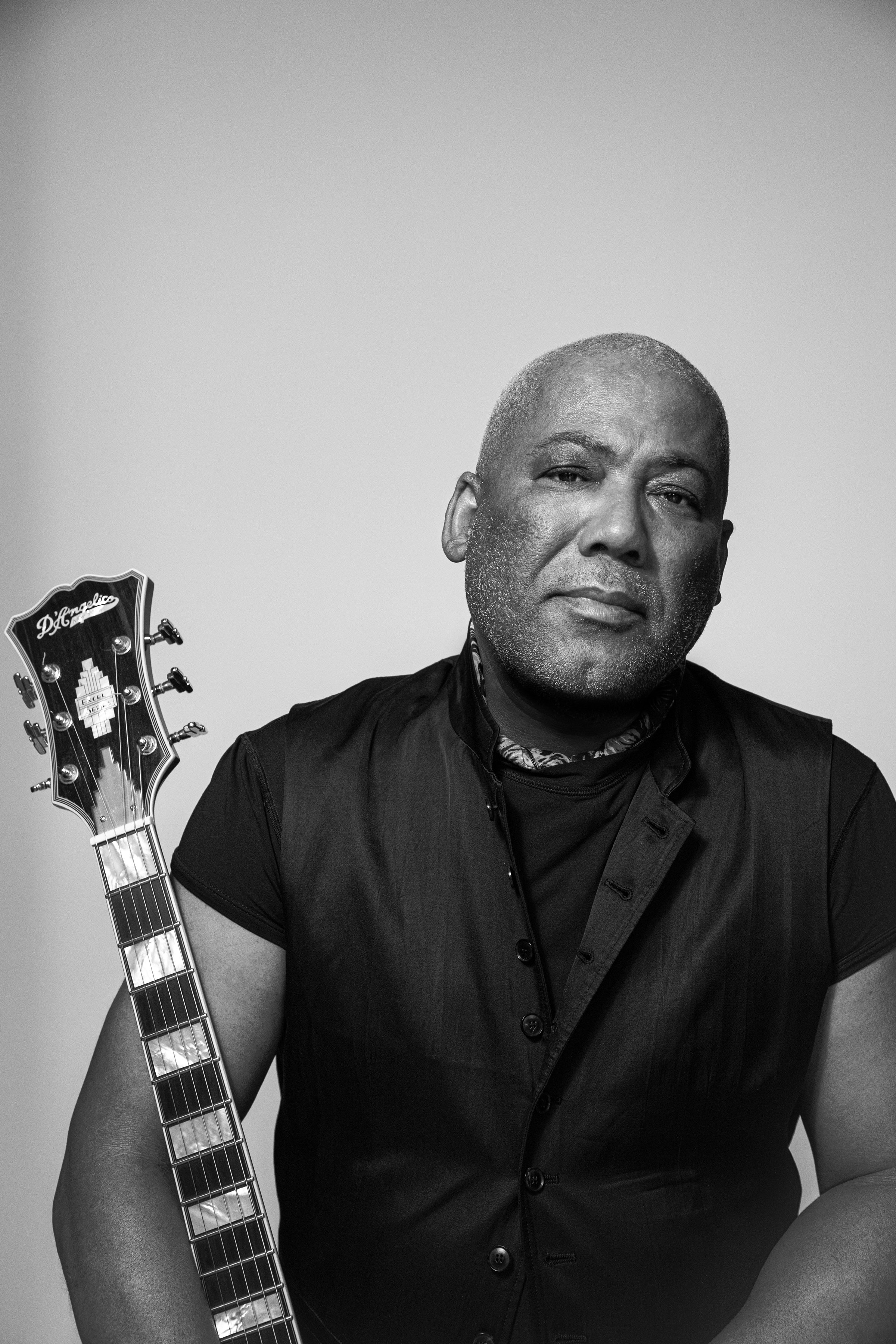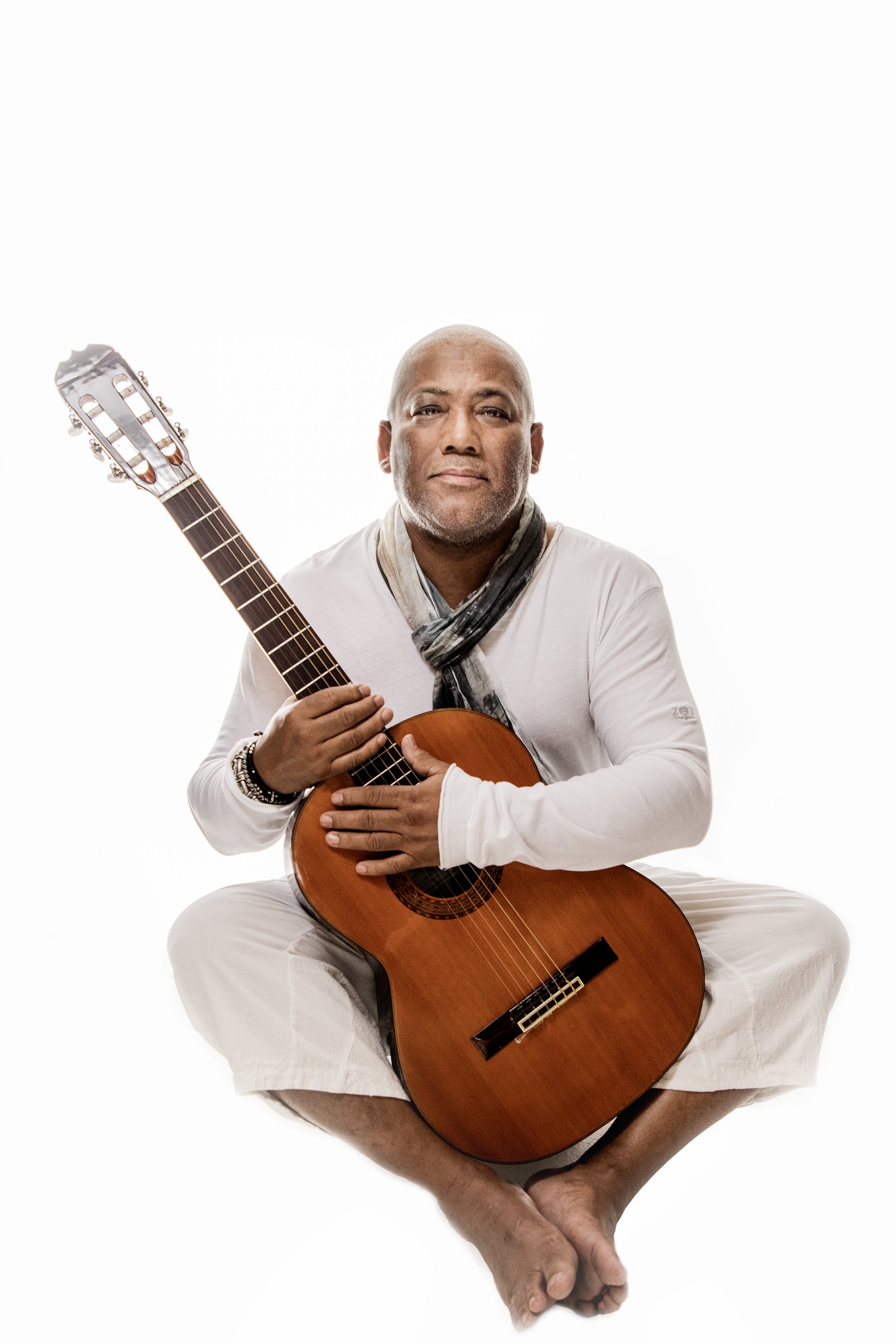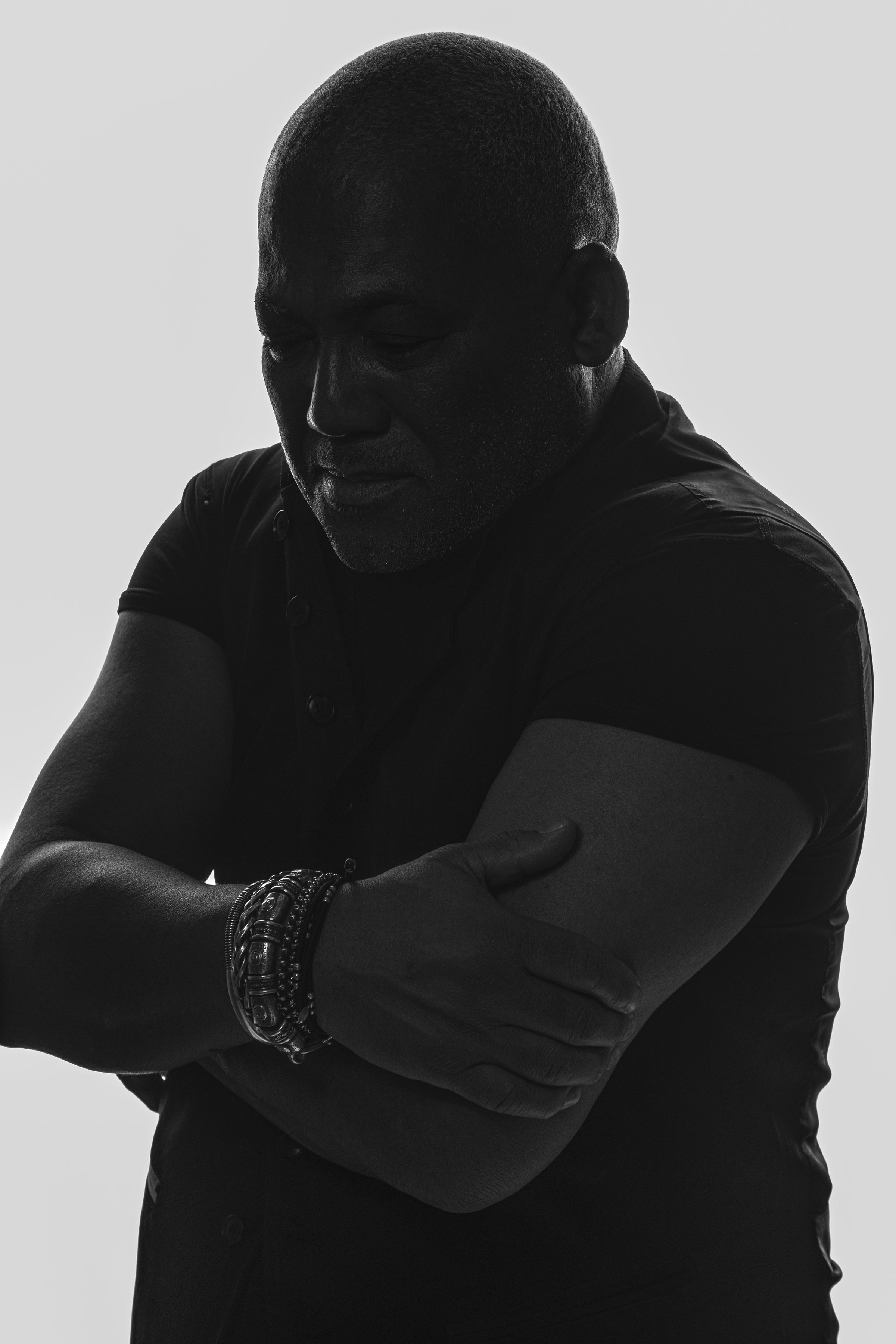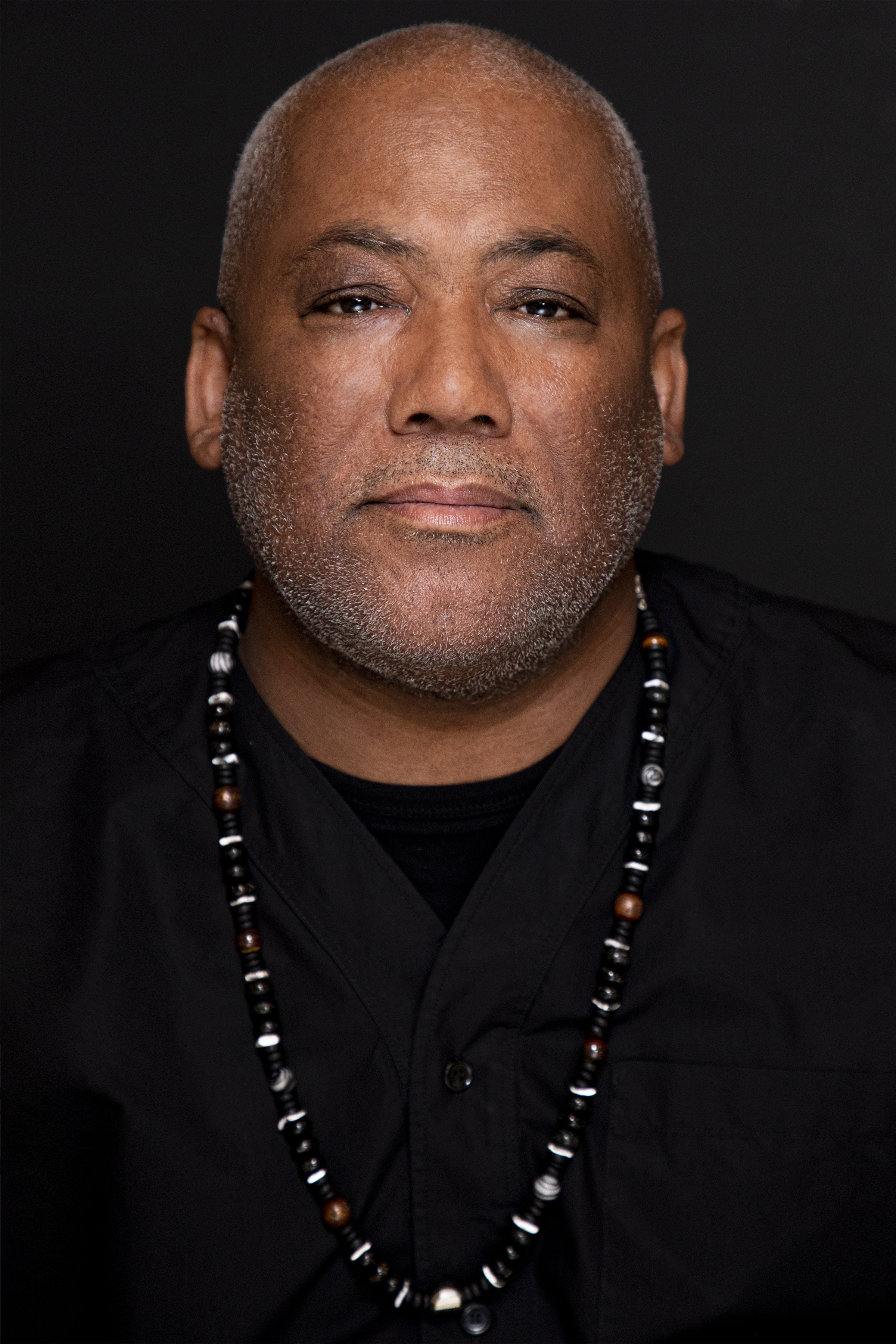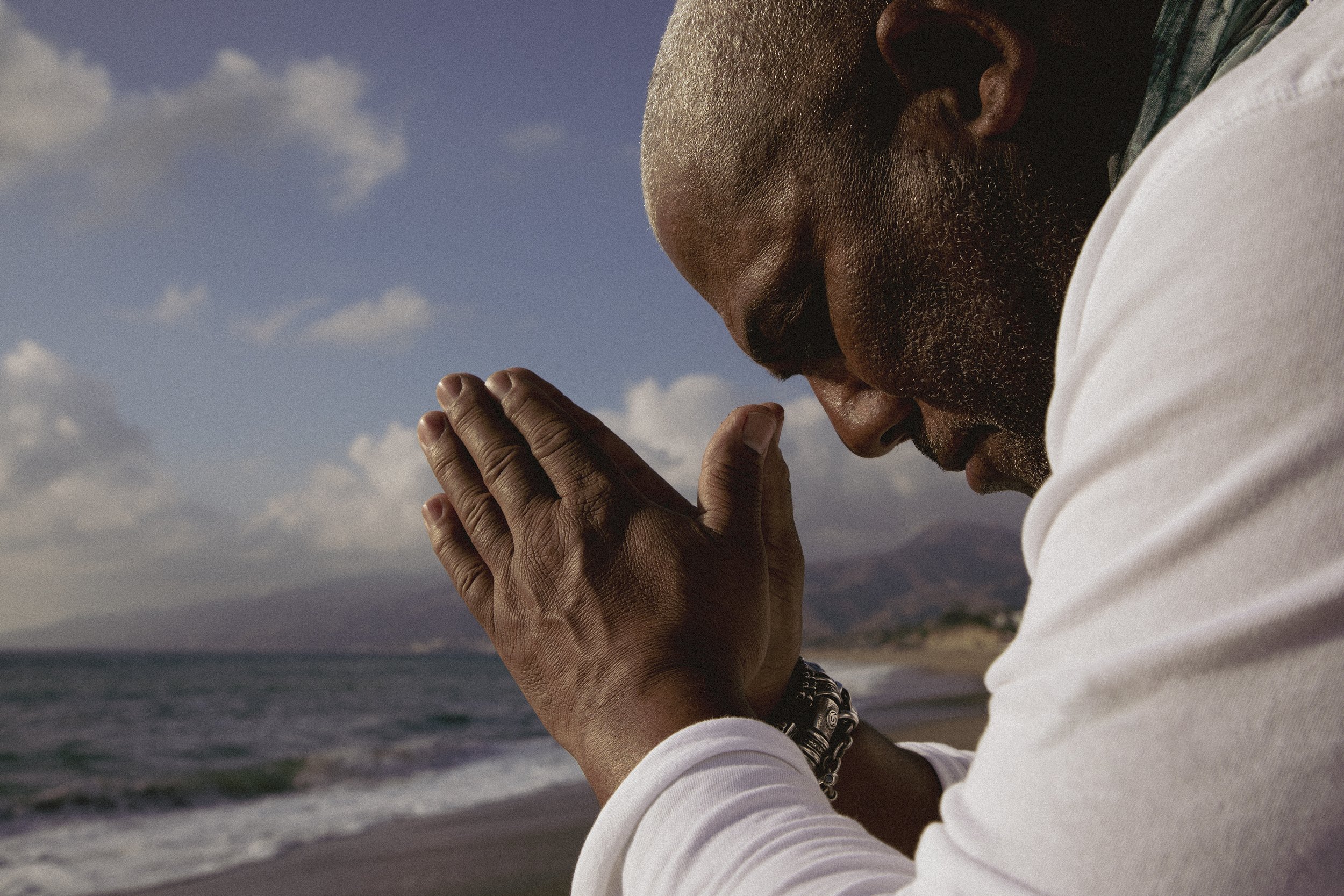Click Image to Download!
In a world and in a time when artists of optimism are at a premium, South African singer/musician Jonathan Butler is a shining example of purposed excellence. From recording local hits as a teenager growing up within the apartheid angst of Cape Town, Butler went on to become a world-renowned singer, guitarist and songwriter delivering soulful salvos of R&B, Gospel, Jazz and Pop. His messages of love, peace and unity ring strong and true because they emanate from the heart of a man who has witnessed and experienced the most glowing of good triumph over the darkest of evils. For his 28th and latest album, Ubuntu, Butler swings full circle back to his homeland, marinating in all the richness of its musical culture yet with a message for the brotherhood and sisterhood of humanity around the globe.
Butler defines Ubuntu as, “A philosophy based in South Africa and spread by Archbishop Desmond Tutu which states, ‘I am me because of you. You are you because of me. We are not separate. We are connected.’ Sometimes, it is something to seek. Other times it is clear to see. We are One People. All the tribes from Zulu to Gaza embrace this - passed on from generation to generation - and shared amongst every tribe in every village. Sharing my life with you is Ubuntu.”
Butler’s 11-song Ubuntu (available April 28, 2023) is comprised of both emotionally moving instrumentals such as the title track (a harmonic convergence of ostinatos) and the tenderly gorgeous “Peace in Shelter” co-composed with Yellowjackets keyboardist Russell Ferrante (one of three featuring Butler’s wife Nadira Kimberly on violin) and vocals that include the message songs “Rainbow Nation” (about the ongoing battle of Equalizers vs. Dividers), “Our Voices Matter” (‘If we look within, we won’t go without’) and “When Love Comes In” featuring blues singer Keb’Mo’, plus the funk love song “No Tomorrow.” The instant attention grabber is a cover of Stevie Wonder’s classic “Superwoman” with Wonder on harmonica.
The album was produced by internationally acclaimed African American bassist/composer Marcus Miller (Miles Davis, Luther Vandross, David Sanborn). He has been a friend to and collaborator with Butler since their sparkling work together on Jonathan’s 1990 album, Deliverance. Miller rose to the occasion of producing this career-shift album at a crucial time finding Butler at a crossroads.
“Marcus came into this project in a season when I didn’t think I had anything to say. I had come to South Africa a few weeks ahead of my annual Jonathan Butler Safari to record a few things with local musician friends. I thought, ‘I’m back home looking for myself. I don’t know what I’m supposed to write or say. I can’t hear it.’ Marcus had come early, too, and we were sitting in the bush when he told me, ‘‘It’s great that you can realize this. A lot of artists can’t come to terms with that when it happens to them.’ My wife said, ‘Let Marcus drive the bus.’ I’m so glad I did. I really needed to focus on the music that makes me who I am.”
Marcus Miller first encountered Jonathan in June of 1988 when both performed at The Nelson Mandela 70th Birthday Tribute, a.k.a. “Freedomfest,” at Wembley Stadium in London – a concert broadcast live to 67 countries for a total audience of 600 million. “I’ll never forget it, Miller muses. “He sat at the piano and sang ‘True Love Never Fails,’ his voice filling the stadium so full of passion… His artistry really struck me. I played on his projects Deliverance (EP) and Heal Our Land (album) – [both in 1990]. Then in 1993, I had him play on my album The Sun Don’t Lie (including the instrumental homage to Stevie Wonder, “Steveland”). We’ve been friends ever since. In 2019, he invited my wife and I on one of his safari tours in South Africa. There he told me he wanted to go in a new direction with his music…to reconnect with his roots. We rented a little studio in Johannesburg and things began to magically come together. THEN the pandemic happened, everything stopped for a while as we took some time to regroup. Eventually, we started writing some new music and Jonathan found some beautiful things like “Love Comes In,” written by Tommy Sims. Beyond Jonathan being such a double threat as a singer and guitarist, I admire how unafraid he is as a man to be romantic. Now, I want everybody to hear Jonathan’s new music. I’m very proud of it…so satisfied that it exists. Our whole creative process was a journey.”
Jonathan Butler sees himself as a messenger more than ever before despite a past that has found him balancing pop hits like “Lies”, “Sara, Sara” and “Me” with Gospel gems and jazz mood music. During America’s soul-numbing days of the COVID pandemic, Black Lives Matter, a too close for comfort presidential race and an economy on the ropes, a shut-in Butler was restless. “The death of George Floyd polarized or awakened musicians I know.” He states. “Some spoke out, others did not, claiming, ‘I’m an artist not a politician!’ My song ‘Our Voices Matter’ came out of that. I felt like, ‘We just saw a modern-day lynching on TV! I have to use my platform to speak out.’ I’ve always been a risk taker. You’re either silent and complicit or you speak out.” After all I’d been through in South Africa, I never thought I’d experience racism in America. But I got that wake-up, call, too - in a Whole Foods store where a couple who saw me wearing a George Floyd shirt told me to ‘go back to my f’in country!’”
Though Jonathan Butler has lived in Southern California for many years and will continue to, he recently realized the dream of joining the board of South African based charitable organization Lalela (https://lalela.org) which provides educational arts programs to create meaningful change that affects thousands of at-risk children in Sub-Saharan Africa.
The making of his Ubuntu album has also given him more to be thankful for in a producer like Miller who has helped him to get back to the true artist inside him. He also cherished the opportunity to work with his musical hero, Stevie Wonder. “In Cape Town, I left school after kindergarten… I never had music lessons, vocal teachers or formal trading. Stevie was my Berklee, my musical guru. His social standing in the world really impacted me as an artist who could speak of the times. To have him love my version of his song and to play on it is just crazy. He left a message on my phone at 7:30am saying, ‘I just prayed with my grandchildren, sent them off to school then listened to your version of ‘Superwoman.’ I love what you did. Thank you for giving me such a gift this morning,’ I forwarded that message to all of my family and friends!”
Butler already has his own safari to which he will soon add an annual jazz festival in Palm Springs, CA. And now upon his “Coming Home” to Cape Town, he may elevate his platform for more social/political good there. Along with 12 siblings, Jonathan grew up in poverty in the shanty town of Athlone, Cape Town. Music proved to be his way out. Touring professionally by age 7, Jonathan’s first single, “Please Stay,” was the first by a black artist played on white radio in segregated South Africa and won a Sarie Award (the country’s equivalent to a Grammy). Committed to conveying stirring messages of freedom and unity through his music, Jonathan became a national icon, especially after it was revealed that Nelson Mandela listened to his music for inspiration while in prison.
Like the philosophy of Ubuntu he shares on his latest album, and the great men Tutu, Mandela and Wonder before him, Butler has a vision to do even more to attain peace and collaboration among all people to change the world.


